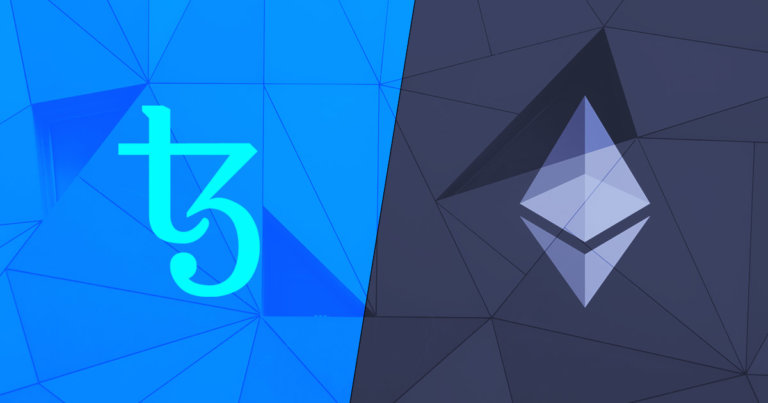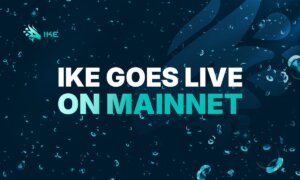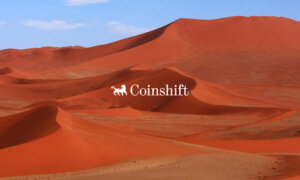 20 Ethereum ERC-20 tokens will be coming to Tezos (XTZ) DeFi in Q1 2021
20 Ethereum ERC-20 tokens will be coming to Tezos (XTZ) DeFi in Q1 2021 20 Ethereum ERC-20 tokens will be coming to Tezos (XTZ) DeFi in Q1 2021

Cover art/illustration via CryptoSlate. Image includes combined content which may include AI-generated content.
On the 2nd of February, Bender Labs tweeted about their new whitepaper here. In the whitepaper it was stated that V1 of the Wrap Protocol, a new protocol to help bring Ethereum assets over to Tezos DeFi via wraps will launch in quarter 1.
The whitepaper stated the whitelisting of 19 ERC-20 Ethereum assets that can be wrapped into FA2 Tezos assets including AAVE, BUSD, CEL, COMP, CRO, FTT, HT, HUSD, LEO, LINK, MKR, OKB, PAX, SUSHI, UNI, USDC, USDT, WBTC, WETH.
The WRAP token of the Wrap Protocol will also be wrapped as an FA2 and we have included in this ’20’ figure.
Bender Labs
Bender Labs, a French team with many members residing in the Greater Bordeaux Metropolitan Area was created to:
“ … build an open financial system running on Tezos”
Bender are looking to bring assets from other chains into the Tezos DeFi ecosystem. For example, on Ethereum there are close to 350,000 ERC-20 tokens. When considering that trading on Tezos is on average, over 3,000 times cheaper than on Ethereum, there could be large incentives to look to trade such assets on Tezos decentralized exchanges in order to avoid such large fees.
In order to build an open financial system running on Tezos that enables assets from other chains to be traded Bender will use a form of ‘wrapping’ assets which they describe as:
…a way to transform any blockchain A into a pegged sidechain of a blockchain B. This way, one can use the consensus mechanism and specific infrastructure of blockchain A to use assets or information stored with both A and B.
Bender will use an ‘Off-Chain Federation’ which is otherwise often known as a ‘Federated Peg’. The idea of a Federated peg was developed by Blockstream in 2016 (built further on a design called ‘Federated Pegs’ by Back et al which was first put forward in 2014).
This is where a ‘group of oracles gather facts, run their own consensus mechanism, and trigger transactions on both chains’. This is done through the aid of a set of co-integrated smart contracts sitting on the Ethereum and Tezos blockchains.
Bender wants to start with Ethereum first, before moving onto other chains.
Why Off-Chain Federation?
Bender…
designed Wrap Protocol as a quick-to-implement, easy to use and understand, and with a reasonably low level of trust decentralized protocol that will allow to quickly and securely bring assets and liquidity on Tezos.
For those reasons they chose off-chain federation as the method to use for the Wrap Protocol as:
off-chain federations offer a good level of “trustlessness” (its members cannot be trusted but the federation can – under certain conditions). It is easy to implement, without important technical dependencies and offers interesting features in terms of speed and transaction cost.
This last part is extremely interesting as Tezos already has much lower transaction fees for Ethereum, so making the method as cheap as possible would make sense to emphasize this difference.
They attached the following image to elaborate how they came to the off-chain federation decision:

20 ERC-20 Tokens To Be Wrapped As FA2 Tokens (Including The Wrap Token)
In the Wrap Protocol Whitepaper it was stated that the following assets would be available as whitelisted to be wrapped in Quarter 1:
- AAVE
- BUSD (Binance USD)
- CEL (Celcius)
- COMP (Compound)
- CRO (Crypto.com)
- FTT (FTX Token)
- HT (Huobi Token)
- HUSD (Huobi USD)
- LEO (UNUS SED LEO – iFinex Ecosystem)
- LINK (Chainlink)
- MKR (Maker)
- OKB (Okex)
- PAX (Paxos)
- SUSHI (Sushiswap)
- UNI (Uniswap)
- USDC (USD Coin)
- USDT (Tether)
- WBTC (Wrapped BTC)
- WETH (Wrapped ETH)
These coins represent some of the largest trading coins on the biggest Ethereum exchange Uniswap. In addition, the Wrap Protocols very own WRAP token will also be wrapped as an FA2 token. As the tokens mentioned above will be whitelisted users will be able to create markets.
The Wrap Token
As part of the Wrap Protocol a Wrap token will also be created where:
…the governance and the economic profit generated by the protocol are distributed to $WRAP token holders. $WRAPs are distributed weekly to users of Wrap Protocol, with the idea of distributing its ownership to members of the Wrap community.
The token has both on-chain and off-chain governance mechanisms that have benefits and a DAO will be created which has rights over things such as fees and supply on the Wrap Protocol.
On-chain governance mechanisms can be used to vote on things such as fee levels and off-chain governance mechanisms (using tools such as BaseDAO) can be used to vote on things such as the introduction of new tokens to be wrapped.
The Wrap Token Economics
The Wrap token is an ERC-20 token that is wrapped 100% into a Tezos FA2 token to enable trades on both blockchains.
The Wrap token will start with a supply of 100 million tokens, but this can be changed via the DAO governance processes. With the current set of parameters laid out at launch, the full distribution is likely to take around 7 years, however this can be changed.
The recipients of the Wrap token fall into 3 distinct groups: Quorum Members, Users of the protocol and the Dev Pool.
The distribution ratios to these groups are as follows: Quorum Members (50%), Users Of The Protocol (40%) and the Dev Pool (10%). This distribution can also be amended by the DAO later down the line.
The Signers Quorum will initially be comprised of 5 members of the Tezos community, including Bender Labs. All wrapping and unwrapping transactions will be governed by a 3-of-5 governance.
Wrapping and unwrapping fees will both be set at 0.15% and will be paid by users in wTokens. Fees will be shared by Signers, $WRAP holders and the Dev Pool as follows:
– Signers: 0.04%
– $WRAP holders: 0.10%
– Dev Pool: 0.01%
The Signers Quorum undertake an important job on the protocol described here:
Wrap relies on an off-chain federation, that we called the Signers Quorum, which makes sure that at any given time the amount of wrapped tokens (that we’ll call wTokens) issued on the Tezos blockchain corresponds to the amount of original tokens locked on Ethereum.
For more information on the Wrap Protocol, it is advised to read the whitepaper here.



 CoinGlass
CoinGlass 


 Farside Investors
Farside Investors 

























































































